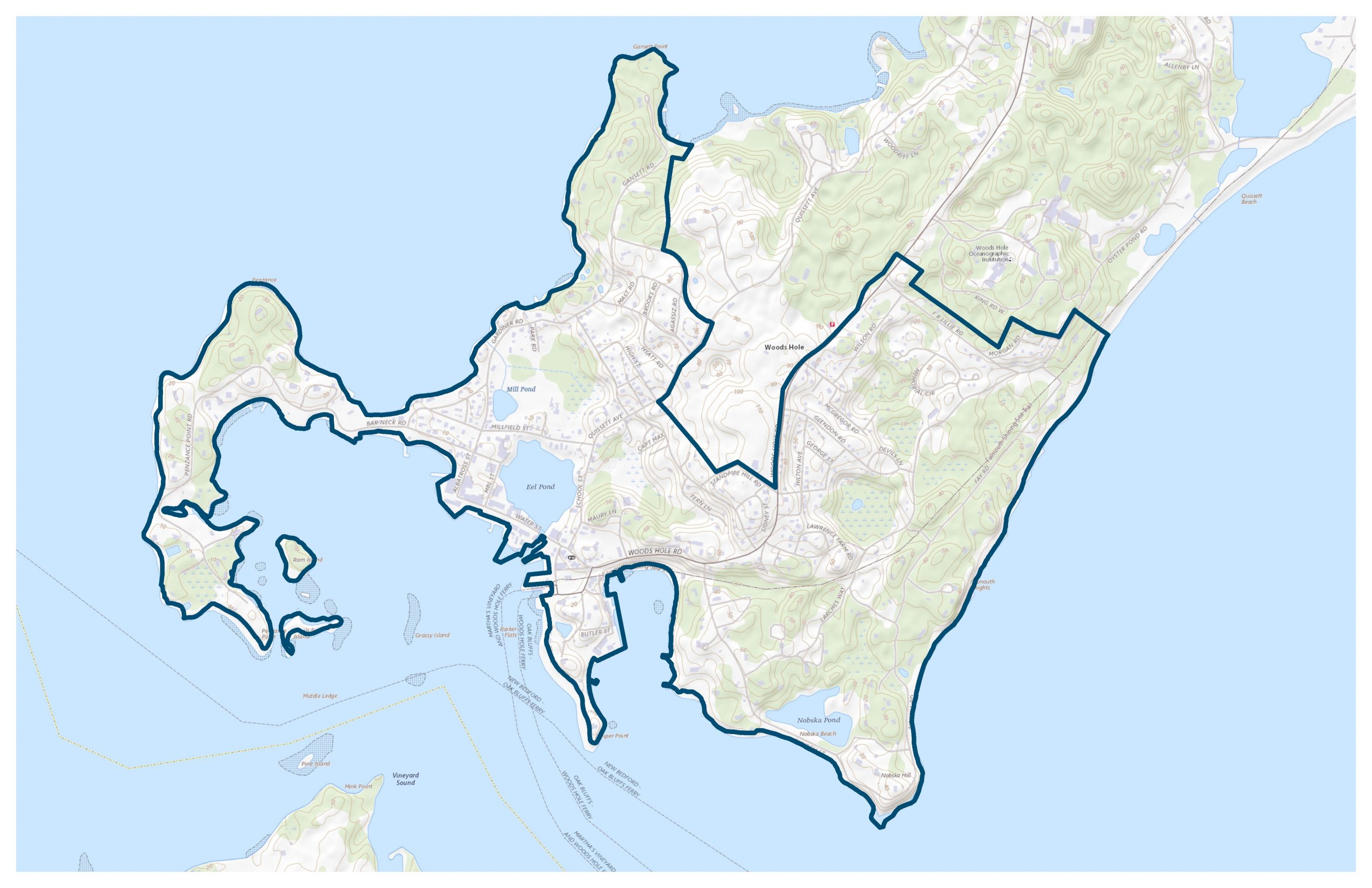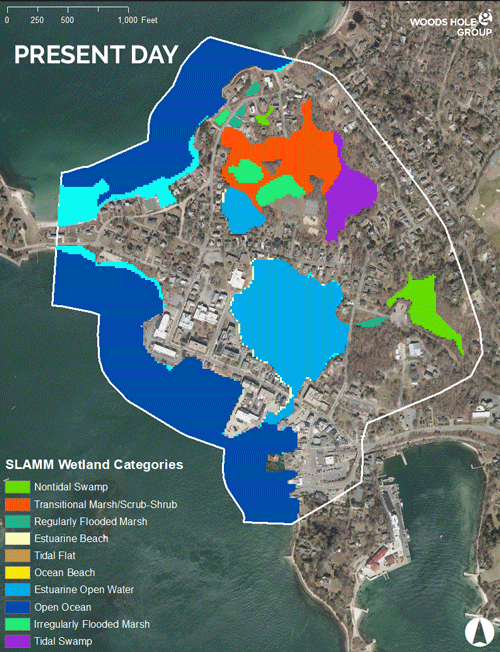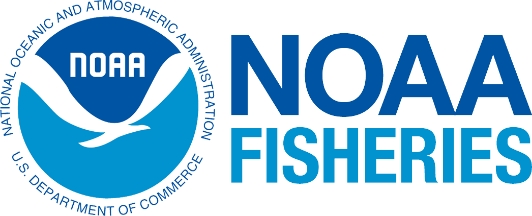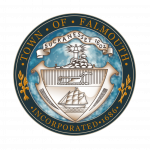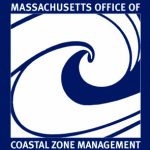ResilientWoodsHole is working to secure the future of the vibrant and productive seaside village of Woods Hole, Massachusetts, in the face of major climate impacts.
FACT: ECONOMIC IMPACT
$385M
Collectively, WHOI, MBL and NOAA Fisheries employ over 1,710 individuals, have a combined annual budget of over $385M, and conduct $256M in research annually.
Why adapt to climate change?
Sea level rise and storm surge present both existential and operational threats to Woods Hole Village’s marine science facilities as well as to the commercial and residential infrastructure within the Village. Often it is not viable or sustainable to adapt assets to sea level rise and/or storm surge in a vacuum. It can also be more efficient and have greater benefit to deploy adaptation solutions on a wider scale to address shared risk rather than addressing each specific flood vulnerability on a case by case basis.
We may need more editorial support here to set this up. What, exactly, is Woods Hole faced with? Snagged the above text from the Phase I report.
What we're doing about it
Considering climate change threats and acknowledging ongoing coastal resilience planning in the Town of Falmouth, we have developed three conceptual community-level strategies to explore adaptation options for Woods Hole Village along three themes:
- The Protect strategy focuses on keeping storm surge and nuisance flooding out of existing developed and undeveloped areas of Woods Hole Village.
- The Migrate strategy condenses nuisance flooding protection into a strategic core of Woods Hole Village, while planning for phased relocation as lower lying areas transition with sea level rise.
- The Transform strategy reconfigures Woods Hole Village to respond to projected longterm change and aligns with existing recommendations for adaptation in the Town of Falmouth’s coastal resilience program.
Woods Hole is home to world-renowned scientific organizations, a vibrant business and residential community, and serves as a vital ferry link to the island of Martha’s Vineyard. With a mission-focused need to be proximate to the sea, the Woods Hole Oceanographic Institution (WHOI), the Marine Biological Laboratory (MBL), and NOAA’s Northeast Fisheries Science Center (NOAA) initiated the development of a long-range framework to prepare for sea-level rise and increasing extreme weather events. A cooperative effort is underway to assess these threats and jointly develop solutions that frame responses for the broader Woods Hole community.
FACT: INFRASTRUCTURE
$110.7M Revenue
2019 transportation to the islands from Woods Hole:
22,949 trips
3,004,436 passengers
478,990 autos
195,328 trucks
Key outcomes
A key outcome of the Project will be a comprehensive phased strategy, including development of village-wide design concepts and planning for increasing coastal resiliency. This strategy will directly address alternatives for the institutional, private, and municipal infrastructure, as well as the natural habitat features and waterways. Further, the work proposed herein contributes directly to the objective of Governor Baker’s Executive Order 569 by supporting the partnership established between WHOI, MBL, NEFSC and the town of Falmouth to develop integrated climate strategies for the Village of Woods Hole.
Commitments
The location of the WHOI, MBL, and NOAA NFSC campuses in the business and residential sections of Woods Hole means that any climate adaptation actions our institutions take will have direct implications for properties adjacent to them. In turn, we also know that any climate adaptation actions taken by Falmouth for the Woods Hole village will necessarily impact our institutional plans.
We recognize:
- Effective climate adaptation planning has to integrate our efforts with those of Falmouth
- Will both benefit our institutions as well as our residential and business neighbors in Woods Hole,
- Help ensure a viable village for the large number of visitors who come to Woods Hole
It is also our intent that the combined institutional expertise and interest of our institutions in dealing with this problem can provide a means for individual homeowners and members of the Woods Hole business community to more effectively engage on the issue.
The town of Falmouth has already been involved in extensive resilience planning. Our initial planning effort complemented Falmouth’s activities by focusing on a specific vulnerable area in the town—the village of Woods Hole. By including the town as a partner in this effort, our goal is to ensure that the work we do in Woods Hole will support Falmouth’s more comprehensive town-wide efforts. It will also help ensure that coastal resilience efforts are addressed in a consistent manner so that the actions our institutions take individually and together are aligned to the greatest extent practicable with decisions made by Falmouth.
Who we are
Steering Committee
ResilientWoodsHole is advised by a broad group of stakeholder representatives as empaneled on the Steering Committee. It is anticipated that the Steering Committee will meet at least 5 times between October 2021 and June 2022 when Phase 3 will culminate.
| Committee Member | Organization |
|---|---|
| Rob Munier | WHOI |
| Leslie-Ann McGee | WHOI |
| Paul Speer | MBL |
| Nicole Cabana | NOAA NMFS NEFSC |
| Adam Reed | NOAA NMFS NEFSC |
| CDR Paul Mangini | USCG |
| Bob Davis | Steamship Authority |
| Rob Thieler | USGS |
| Beth Colt | Woods Hole Business Association |
| Zach Zobel | Woodwell Climate Research Center |
| Julian Suso | Town of Falmouth – Town Manager |
| Jen Lincoln | Town of Falmouth – Conservation Commission |
| Charlie McCaffrey | Former Chair – Falmouth Coastal Resiliency Action Committee |
| Amy Lowell | Town of Falmouth – Wastewater Dept |
| Pam Harvey | Penzance Point - Neighborhood Representative |
| Peter Jeffrey | Gansett – Neighborhood Representative |
| Judy Laster | Eel Pond – Neighborhood Representative |
| Steve McKenna | MA Office of Coastal Zone Management |
| TBD | Indigenous Peoples Representative |
| TBD | Faye Road – Neighborhood Representative |
Leadership
Woods Hole Oceanographic Institution (WHOI)
Marine Biological Laboratory (MBL)
NOAA Northeast Fisheries Science Center (NOAA Fisheries)
Partners
While the initiative draws upon and engages a wide variety of stakeholders, ResilientWoodsHole is led by a collaboration between WHOI, MBL, and NOAA Fisheries. The Town of Falmouth, the Massachusetts Office of Coastal Zone Management, and the Woods Hole Group are active partners in this initiative.

